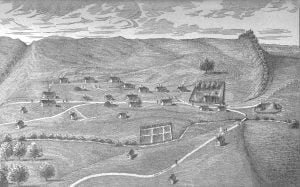Winnebago Tribe
The Winnebago Tribe, part of the Siouan linguistic family, has a rich history dating back to their initial contact with Europeans in 1634. They inhabited the Green Bay region and interacted with various Algonquian and Siouan tribes. Despite facing numerous challenges, including forced relocations and disease, they maintained their cultural identity through distinct material culture and language. Historically, they allied with the British in conflicts like the War of 1812, and today, they reside primarily in Nebraska and Wisconsin.

